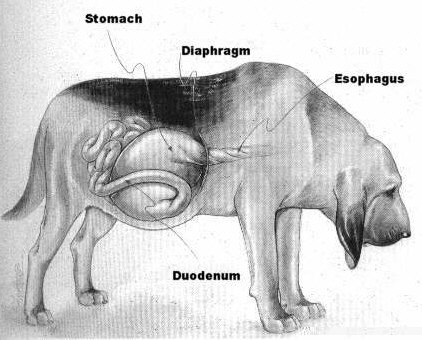
An ulcer in the duodenum is called a duodenal ulcer. The duodenum is located in the first 10 inches or so of the small intestine where it connects to the stomach. A duodenal ulcer is a lesion that is found eating away the lining of the duodenum. The cause for a duodenal ulcer can be one of many. A bacteria infestation in the lining of the duodenum or stomach, certain medications and stomach acids are what can cause a duodenal ulcer. The kind of bacteria in the infestation that can cause one of these ulcers to form is the Helicobacter pylori (H. pylori) bacteria. People who take NSAIDs regularly can also develop a duodenal ulcer. these kinds of ulcers are common in adults and rarely occur in children. if this kind of ulcer is not treated it can lead to excessive blood loss and internal bleeding.
Duodenal ulcer symptoms include:
These symptoms are more noticeable before a meal. The excess acid that is being produced by the stomach, which signals hunger, passes through to the duodenum where it aggravates the lesion and erosion of the lining. The symptoms can also become worse as the ulcer grows larger. However, sometimes a person can have a duodenal ulcer and not realize it because they have no physical symptoms at all.
When you go to your doctor complaining of duodenal ulcer symptoms the doctor will do a blood test to detect the presence of H. pylori. Helicobacter pylori can be the cause for up to 95% of all the cases in people who have one of these ulcers who do not take NSAIDs. A family history is taken and lifestyle questions are asked. if the primary care doctor suspects a duodenal ulcer you will be referred to a gastroenterologist. A gastroenterologist is a specialist who treats duodenal ulcers. This doctor will take abdominal x-rays and may have a CT scan done of the duodenum. The doctor may also use an endoscope to look inside the stomach to confirm the diagnosis. An endoscope is a flexible tube that has a fiber optic camera in it. This tube is inserted down the throat and into the duodenum.
The treatment for duodenal ulcer symptoms will depend on the size of the ulcer and the symptoms you are having. most of the time the doctor gives you a prescription for oral antibiotics to kill the H. pylori bacteria. You may also have to take antacids for about 6 weeks. You should not take NSAIDs if you have a duodenal ulcer. NSAIDs are pain killers like advil and ibuprophen and motrin. Your doctor will advise you on what other kinds of medications you can take for pain. if the duodenal ulcer symptoms are severe, or if there is bleeding present, the doctor may choose to perform surgery.
Patients who have duodenal ulcer symptoms should not smoke. they should not consume alcohol either since the alcohol can cause further irritation to the ulcer. You should also avoid spicy foods if you have duodenal ulcer symptoms. Spicy food can cause too much stomach acid which can make the symptoms worse. Usually the lining of the stomach and duodenum have a natural barrier to these stomach acids but when an ulcer is present that barrier has been eaten away. Anytime damage to the lining occurs a duodenal ulcer will develop.